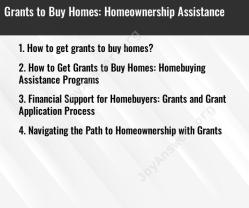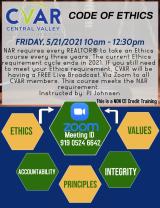When being late on mortgage payments is getting dangerous?
Being late on mortgage payments can become risky at various points, and the consequences can escalate as time goes on. Here's a timeline of potential risks associated with late mortgage payments:
30 Days Late: Most lenders offer a grace period of about 15 days after the due date for mortgage payments. After that, if you haven't made your payment, it's typically considered late. During this period, you may incur a late fee, but your account may not be reported as delinquent to the credit bureaus. It's important to make the payment as soon as possible to avoid further consequences.
60 Days Late: If you miss a second consecutive payment, your account is likely to be reported as delinquent to the credit bureaus. This can significantly impact your credit score. You'll continue to incur late fees, and your lender may start contacting you to discuss the missed payments.
90 Days Late: By this point, your account is even more delinquent, and the risk of foreclosure becomes a real concern. Many lenders will begin the foreclosure process if you're 90 days late or more. You may receive a notice of default, and legal action may be initiated.
120 Days Late: At this stage, you are at a higher risk of foreclosure, and the lender may send a notice of acceleration. This notice states that the entire loan balance is due immediately if the missed payments are not brought up to date within a specified time frame.
150 Days Late and Beyond: If you continue to be late on mortgage payments, foreclosure proceedings can advance, and the lender may move forward with the sale of your home. The exact timeline and process vary by state and lender.
To avoid the risks associated with late mortgage payments:
Communicate with your lender early if you're experiencing financial difficulties. Many lenders offer assistance programs, such as loan modifications, forbearance, or repayment plans.
Seek guidance from housing counselors or legal professionals who can help you understand your options and navigate your specific situation.
Keep track of all communication with your lender and stay informed about your rights and the foreclosure process in your state.
Make efforts to bring your payments up to date as soon as possible to prevent further damage to your credit and the risk of foreclosure.
It's essential to act promptly if you're facing financial challenges that make it difficult to make mortgage payments. Early intervention and communication with your lender can help you explore alternatives and avoid the most severe consequences of late payments.
When does being late on mortgage payments become financially dangerous?
Being late on mortgage payments can become financially dangerous as soon as you miss your first payment. Even one missed payment can damage your credit score and make it more difficult and expensive to borrow money in the future.
However, the financial consequences of missing mortgage payments become increasingly severe with each subsequent missed payment. If you miss two or more mortgage payments, your lender may start the foreclosure process. Foreclosure can result in you losing your home and having to pay a deficiency judgment, which is the difference between what you owe on your mortgage and what your home sells for at auction.
What are the consequences of missing mortgage payments?
The consequences of missing mortgage payments can include:
- Damage to your credit score: A late mortgage payment will be reported to the credit bureaus and will damage your credit score. This can make it more difficult and expensive to borrow money in the future.
- Late fees: Most lenders charge late fees for missed mortgage payments. These fees can vary, but they are typically a percentage of your monthly payment.
- Foreclosure: If you miss two or more mortgage payments, your lender may start the foreclosure process. Foreclosure can result in you losing your home and having to pay a deficiency judgment.
How to assess the risk and implications of falling behind on your mortgage?
To assess the risk and implications of falling behind on your mortgage, you should consider the following factors:
- Your financial situation: How much money do you have in savings and investments? How much debt do you have? What is your income?
- Your mortgage terms: What is your interest rate? How long is your loan term? What is your monthly payment?
- The housing market: Is the housing market in your area strong or weak?
If you are struggling to make your mortgage payments, it is important to contact your lender as soon as possible to discuss your options. Your lender may be able to work with you to modify your loan terms or create a forbearance plan.
What options are available to prevent foreclosure when facing mortgage payment challenges?
There are a number of options available to prevent foreclosure when facing mortgage payment challenges. These options include:
- Loan modification: A loan modification is a permanent change to your loan terms that can make your payments more affordable.
- Forbearance: A forbearance is a temporary suspension or reduction of your mortgage payments.
- Repayment plan: A repayment plan is a plan to repay your missed mortgage payments over a period of time.
- Short sale: A short sale is a sale of your home for less than what you owe on your mortgage.
- Deed-in-lieu of foreclosure: A deed-in-lieu of foreclosure is a voluntary transfer of your home to your lender to satisfy your mortgage debt.
How to communicate with lenders when struggling to make mortgage payments?
When struggling to make mortgage payments, it is important to communicate with your lender as soon as possible. Be honest and upfront about your situation, and be prepared to discuss your options.
Here are some tips for communicating with lenders when struggling to make mortgage payments:
- Be polite and professional.
- Be prepared to provide your lender with documentation of your financial situation, such as bank statements and pay stubs.
- Be clear about your needs and goals.
- Be willing to negotiate.
If you are not comfortable communicating with your lender on your own, you may want to consider hiring a mortgage counselor or attorney to help you.
It is important to remember that you are not alone if you are struggling to make your mortgage payments. There are a number of resources available to help you avoid foreclosure and keep your home.













